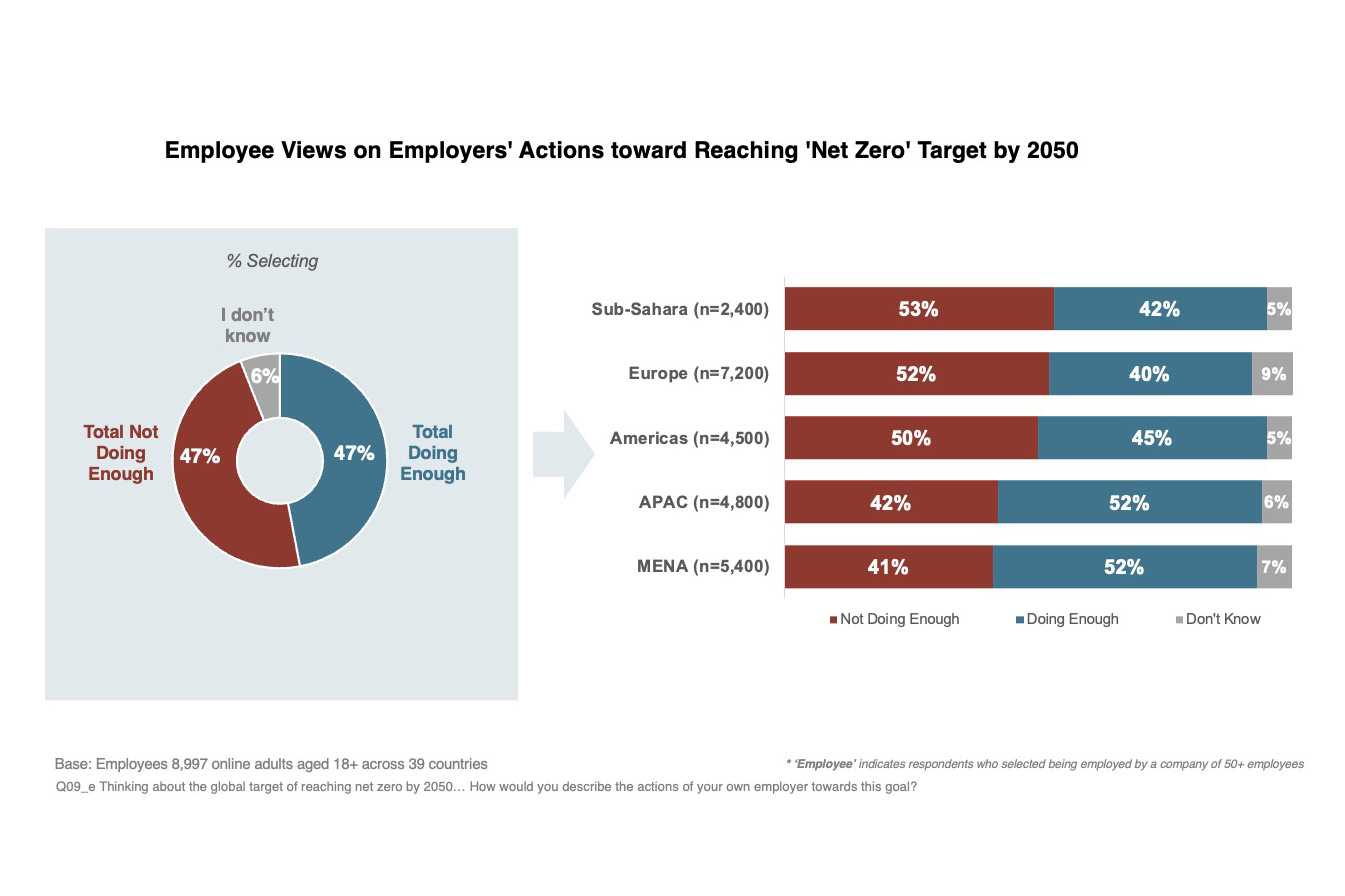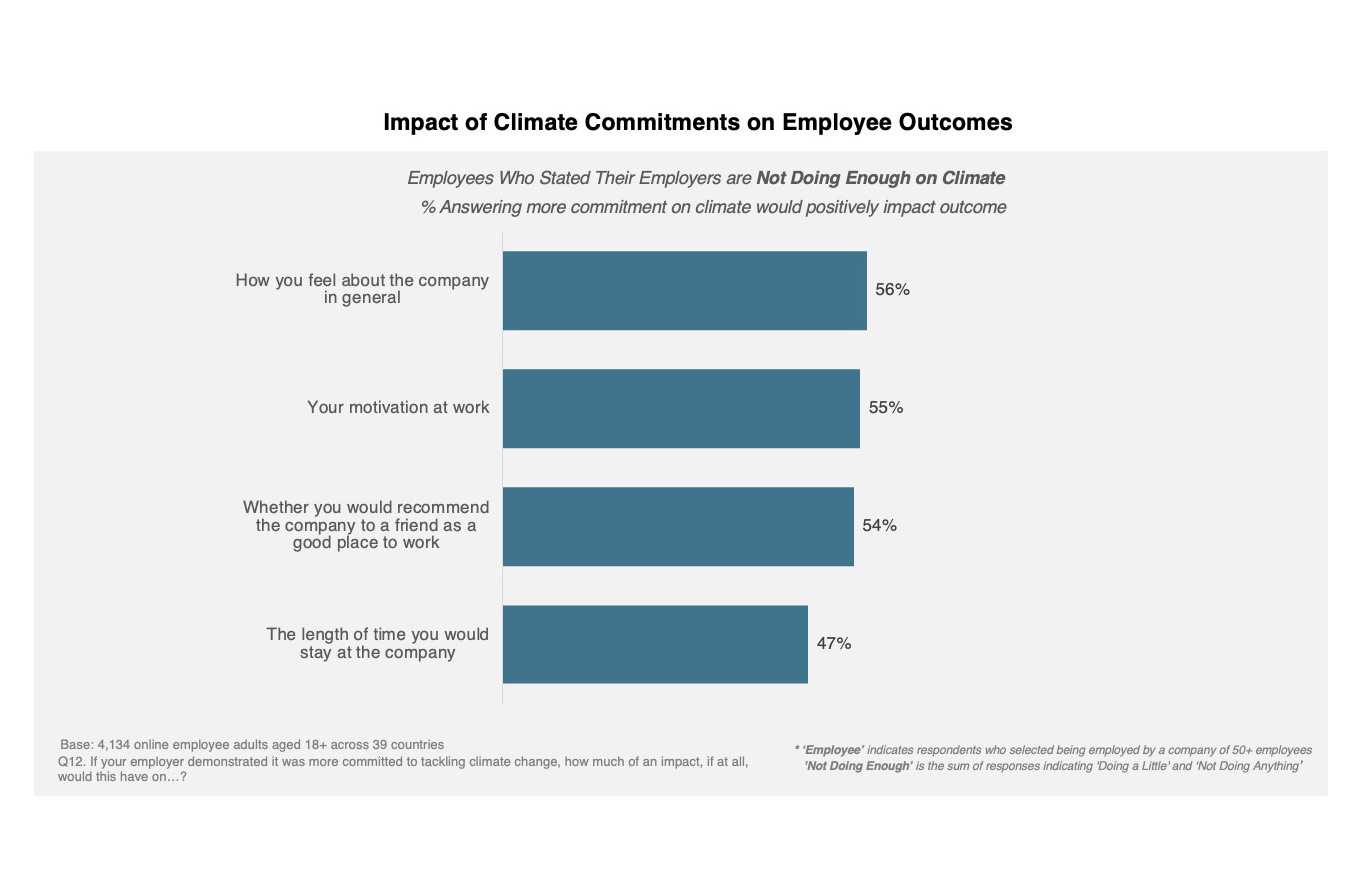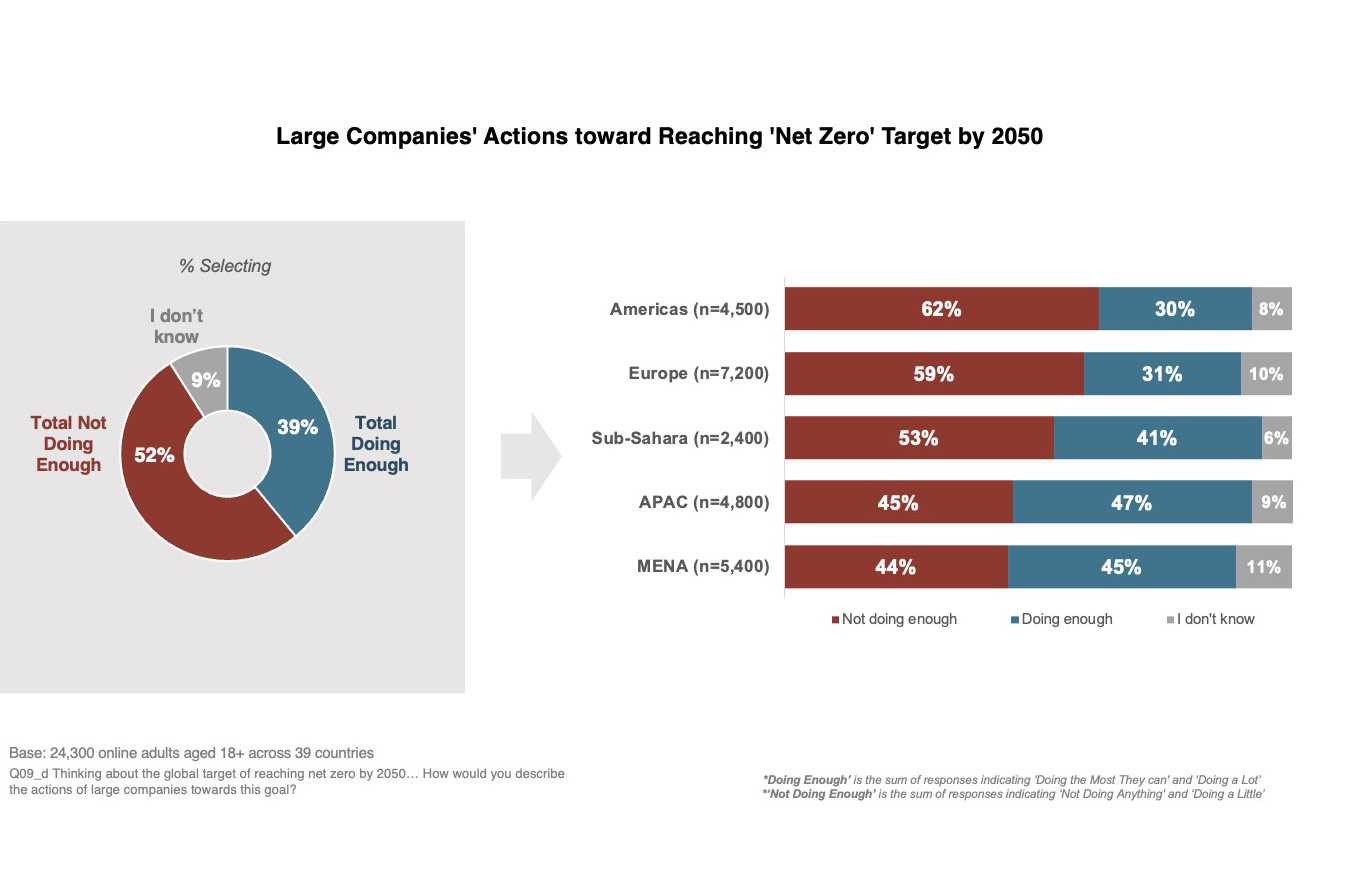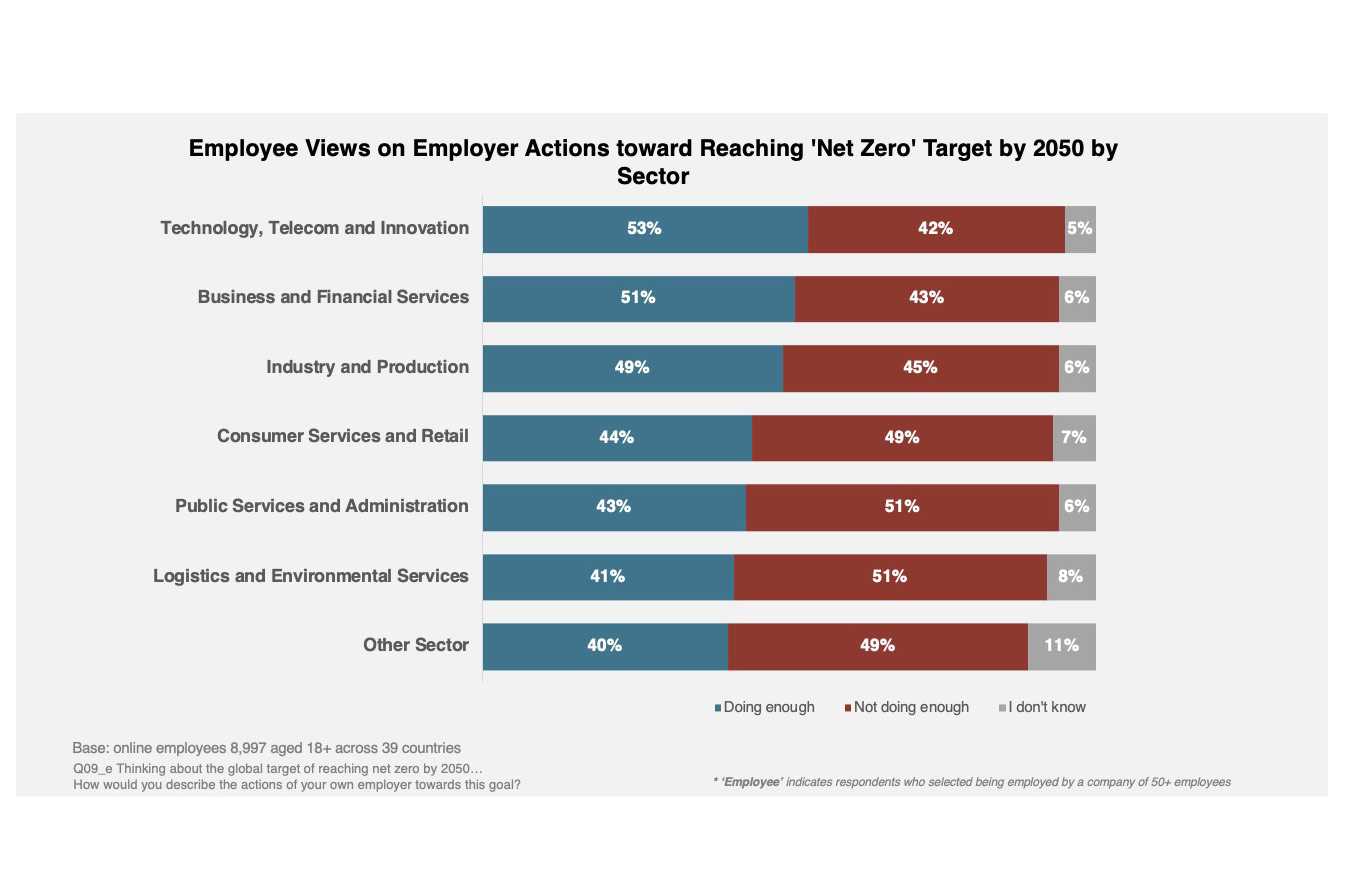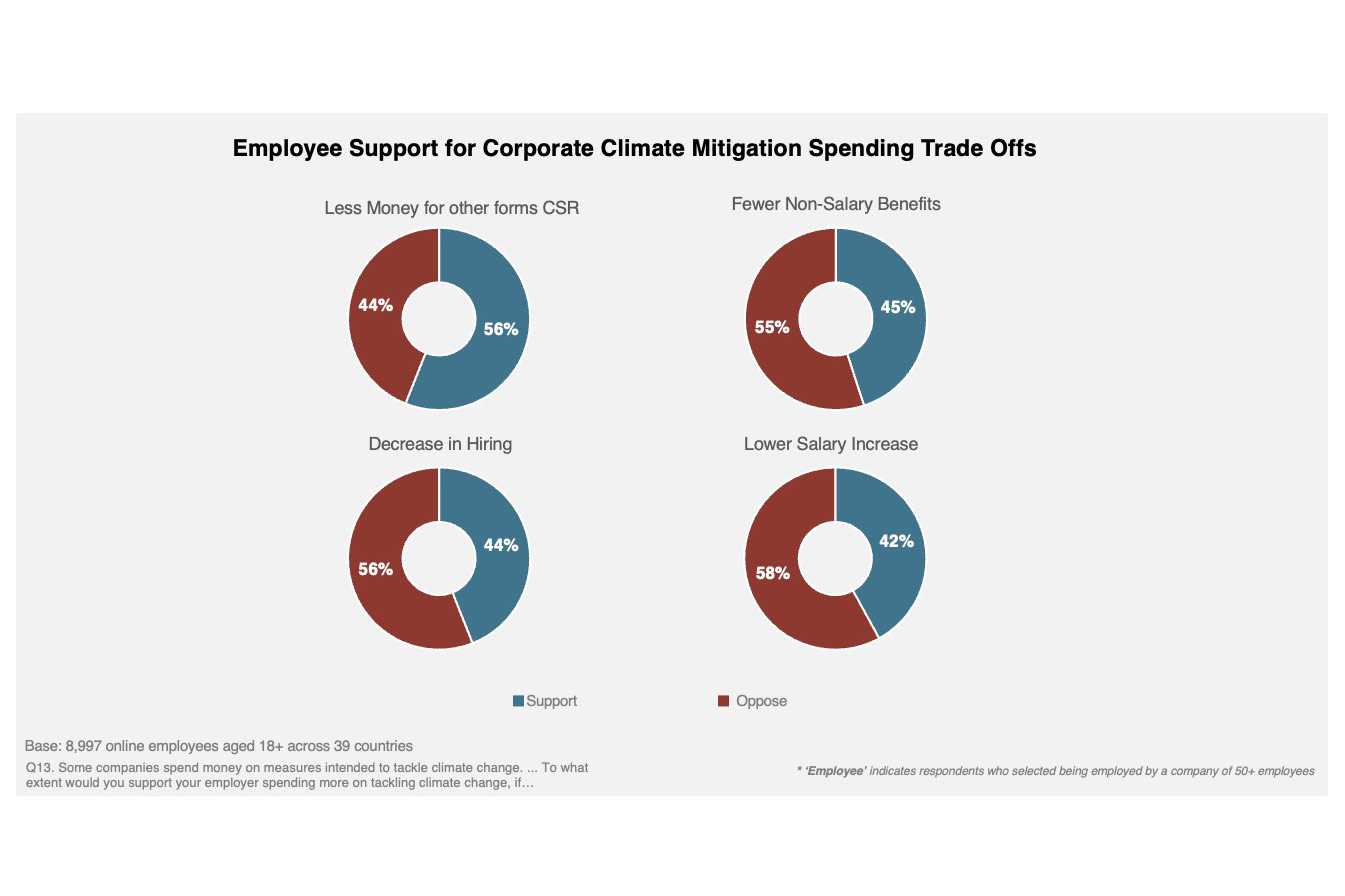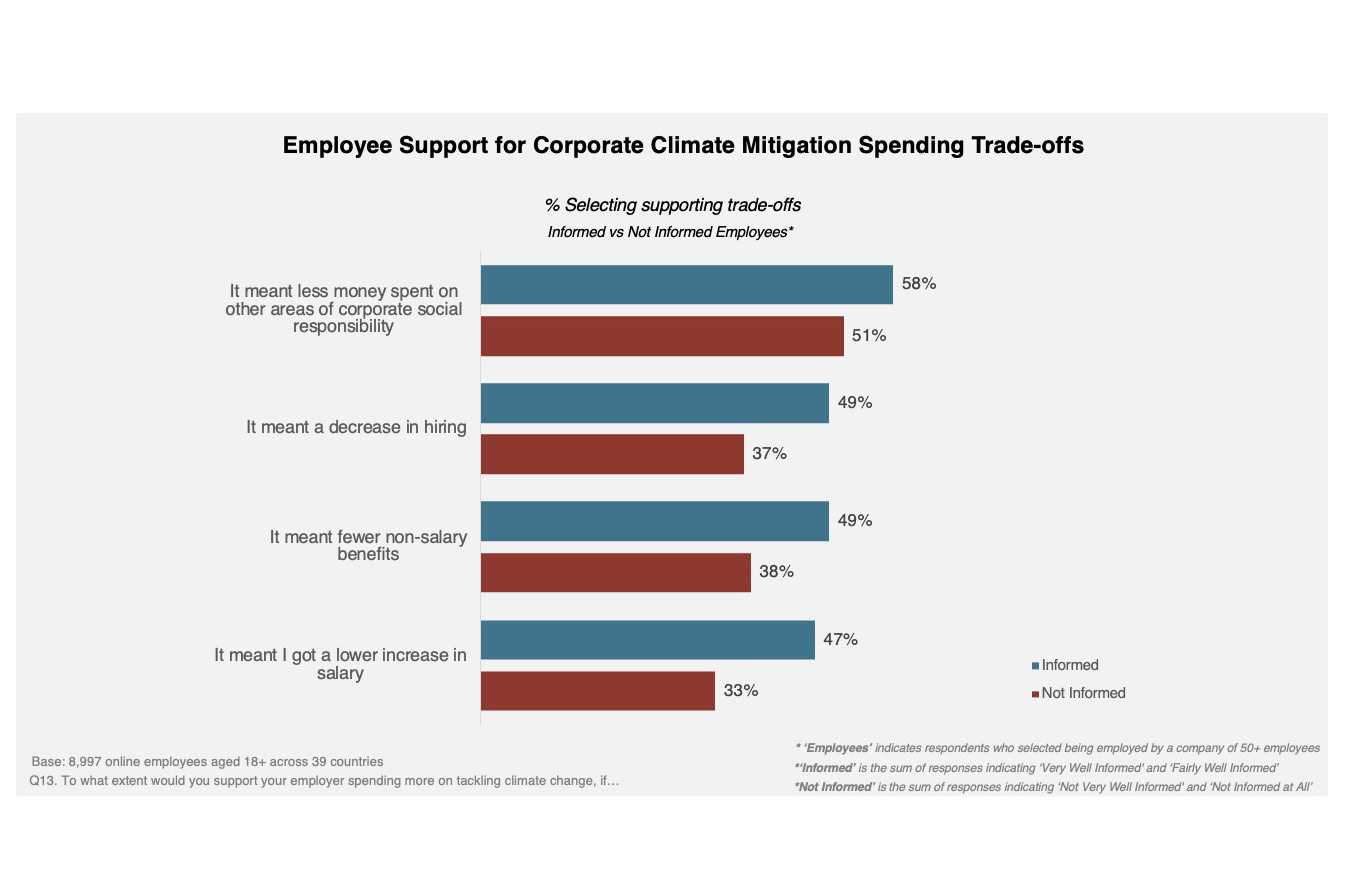
From Good Intentions to Great Retention: Unveiling Climate Action’s Multi-Level Benefits
March 25, 2024
Employees want to see their company do more towards climate action.
A recent survey by APCO finds that close to half (47%) of employees working in companies of more than 50 employees across 39 countries believe their employer is not doing enough towards reaching net zero targets by 2050.
The sentiment that companies can and should be doing more to reach net zero targets is most pronounced among employees residing in Sub-Saharan Africa, closely followed by employees in Europe and the Americas. Although employees in the Middle East and North Africa (MENA) and Asia Pacific (APAC) regions have slightly more positive perceptions of their employer’s progress towards net zero, just over half believe that their employer is taking sufficient action in this regard.
Companies’ climate commitments have a positive impact on employees’ motivation, loyalty and other outcomes.
Employees who believe their employer is not sufficiently addressing climate change say that, if their employer shows a stronger commitment to tackling climate change, they will feel better about their company (56%) and would be more motivated at work (55%). Furthermore, 54% would be more likely to recommend the company to a friend as a good place to work and 47% would be more likely to stay at the company.
Going for net-zero goals is more than just doing the right thing for the environment—it’s also great for creating a strong company culture. Moving towards a net-zero future means societal benefits like cleaner air and better health for everyone, but our study also shows it makes employees loyal and motivated to be part of their company. Businesses focused on reaching net zero find that their workers are more loyal and eager to do their part. So, working towards net zero doesn’t only deal with outside problems like higher insurance costs or running out of supplies; it also makes the company stronger on the inside. Companies that take steps to fight climate change are not just helping the planet—they’re also building a dedicated team.
A global majority think large companies are falling short on actions to reach net zero by 2050, with over half thinking companies are doing only a little, or nothing at all.
Only 14% of the global public think large companies are doing the most they can, with 25% believing they are doing a little. People residing in the Americas and Europe are the most critical of the efforts of large businesses, with close to two-thirds stating companies’ climate actions are falling short. Across continents, there is a clear opportunity for companies to rise to the challenge and take steps towards a net zero future.
Within various industries, the technology and telecom sectors are viewed as frontrunners in climate action, with half of employees in this sector stating that their company is taking adequate steps to achieve net zero emissions by 2050.
Sharing information about an organization’s climate actions can increase employee support for climate investments, even when it involves potential tradeoffs.
Engaging in climate action entails change at the organizational level, which can involve changing priorities or tradeoffs. APCO’s survey explores this complex subject by assessing employee’s perceptions regarding several potential tradeoffs.
According to the data, a sizeable portion of employees are open to trading off certain benefits or resources for investments in climate action. Four in ten employees support trading off a lower salary increase to invest in climate action. Decrease in hiring receives support from 44%, and fewer non-salary benefits by 45%.
This support increases when employees feel informed about their employer’s climate actions, with 47% supporting investment even if they got a lower increase in salary, and 49% if it meant fewer non-salary benefits or a decrease in hiring.
The main takeaway is the importance of recognizing the opportunities that emerge from involving employees in the organizational change process regarding climate action engagement. Through sharing information and engaging employees in decision-making, companies can establish a strong foundation for effective climate action efforts while also upholding employee satisfaction and support.
Our research indicates a growing demand for heightened corporate climate action to reach net zero goals, not just from the public but also from employees.
Organizations that bolster their commitments and ensure that their workforce is well informed about impactful climate initiatives stand to benefit in terms of how their employees perceive the company, their level of motivation, and their loyalty to the organization. Such efforts can cultivate a positive organizational culture, enhance employee engagement, and strengthen employer-employee relationships, ultimately contributing to overall business success and sustainability.
APCO Insight, the research division of APCO, in partnership with WBCSD, conducted a comprehensive online survey across 39 markets globally with 24,300 adults to gain insights into public concerns, awareness around net zero targets, and government action against climate change. We have gathered responses from five regions including the Americas, Asia-Pacific (APAC), Europe, the Middle East and North Africa (MENA) and Sub-Saharan Africa.
